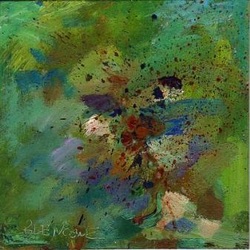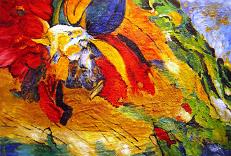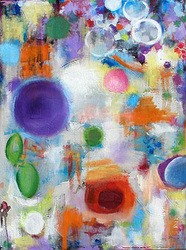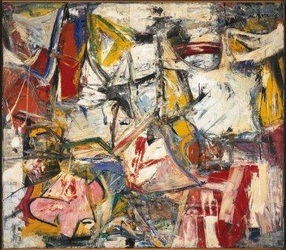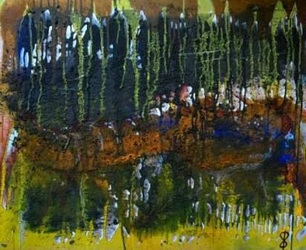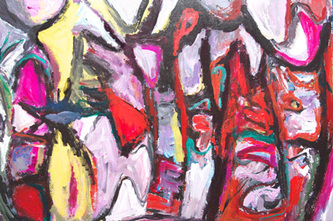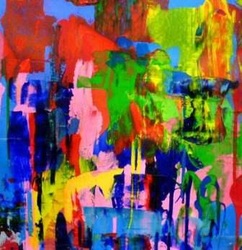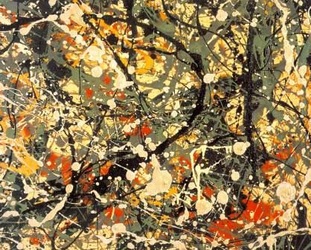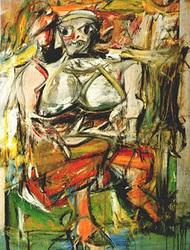Abstract Expressionism
- "A painting movement in which artists typically applied paint rapidly, and with force to their huge canvases in an effort to show feelings and emotions, painting gesturally, non-geometrically, sometimes applying paint with large brushes, sometimes dripping or even throwing it onto canvas. Their work is characterized by a strong dependence on what appears to be accident and chance, but which is actually highly planned. Some Abstract Expressionist artists were concerned with adopting a peaceful and mystical approach to a purely abstract image. Usually there was no effort to represent subject matter. Not all work was abstract, nor was all work expressive, but it was generally believed that the spontaneity of the artists' approach to their work would draw from and release the creativity of their unconscious minds. The expressive method of painting was often considered as important as the painting itself. Artists who painted in this style include Hans Hoffman (German-American, 1880-1966), Adolph Gottlieb (American, 1903-1974), Mark Rothko (American, 1903-1970), Willem De Kooning (Dutch-American, 1904-1997), Clyfford Still (American, 1904-1980), Barnett Newman (American, 1905-1970), Franz Kline (American, 1910-1962), William Baziotes (American, 1912-1963), Jackson Pollock (American, 1912-1956), Philip Guston (American, 1913-1980), Ad Reinhardt (American, 1913-1967), Robert Motherwell (American, 1915-1991), Sam Francis (American, 1923-1994), and Helen Frankenthaler (American, 1928-). Abstract Expressionism originated in the 1940s, and became popular in the 1950s." - artlex.com
